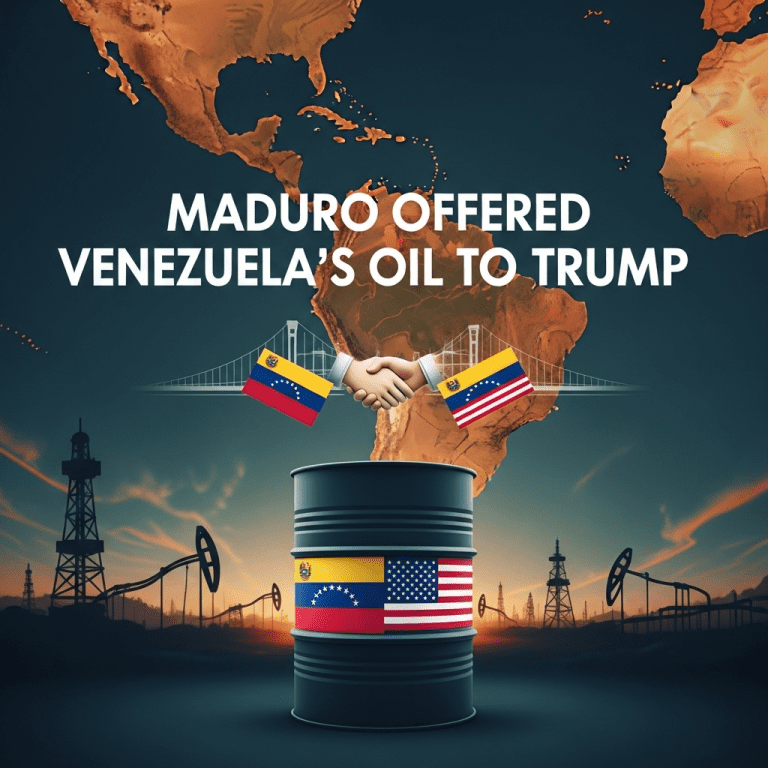Recent revelations confirm that Maduro offered Venezuela’s oil to Trump to avoid conflict with U.S., casting new light on the shifting dynamics of global energy relations in 2025. As the world seeks stability in oil supply chains, this diplomatic maneuver raises questions for investors and energy strategists alike.
Geopolitical Impact: Maduro Offered Venezuela’s Oil to Trump to Avoid Conflict with U.S.
The strategic choice by Nicolás Maduro to propose Venezuela’s vast oil reserves to former President Donald Trump was not just a political overture—it was a calculated move to anchor Venezuela’s position within international energy markets. As sanctions strained the nation’s economy and created volatility in oil exports, Maduro’s offer highlighted the lengths to which the Venezuelan government was willing to go to normalize relations with the United States and maintain vital oil revenues. For global investors, understanding these backroom negotiations is essential for anticipating future supply disruptions or opportunities in Latin American energy assets.
Venezuela’s Oil Sector: Challenges and Opportunities
Venezuela, home to the world’s largest proven oil reserves, continues to grapple with dilapidated infrastructure, erratic production, and international sanctions. Maduro’s outreach to the Trump administration, as confirmed by diplomatic sources, was an attempt to break this deadlock and attract direct investment or favorable trade terms. The strategy aimed to provide stability for Venezuela’s struggling state oil company, PDVSA, and open pathways to international financial support. Energy sector participants analyzing emerging market risks have paid close attention to the ripple effects of such overtures in oil price movements and regional diplomatic alignments.
U.S.–Venezuela Relations and Energy Markets
While the Trump administration ultimately maintained sanctions, the episode set the stage for future administrations’ policy shifts. In recent years, American companies and energy traders have revisited the idea of accessing Venezuelan oil as global supply chains adapt to ESG pressures and geopolitical conflicts elsewhere, like the Russia-Ukraine war. For portfolio managers seeking diversification strategies, Venezuela’s potential reentry into the global oil trade could offer both risk and reward, contingent on the normalization of relations with major economies.
Outlook for 2025: Investor Considerations as Maduro Offered Venezuela’s Oil to Trump to Avoid Conflict with U.S.
Maduro’s willingness to negotiate access to Venezuela’s oil reserves offers instructive lessons for energy investors in 2025. The incident underscores the fluid nature of political risk in emerging markets, especially where resource nationalism collides with external economic pressures. Despite lingering uncertainties, international companies remain keenly interested in Venezuela’s long-term production capacity, given forecasts of rising global energy demand and the slow transition toward renewables. Savvy investors monitoring market trends should take note of these developments and weigh both the regulatory landscape and operational risks associated with the region.
Conclusion: What the Offer Reveals About Oil Diplomacy
The saga in which Maduro offered Venezuela’s oil to Trump to avoid conflict with U.S. is a powerful reminder of the intersection between geopolitics and energy economics. The move highlights how political crises can spur unconventional diplomacy, reshape market access, and create new considerations for investors navigating global oil markets in 2025 and beyond.









